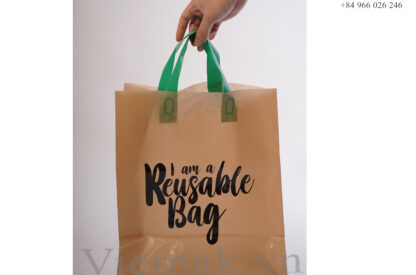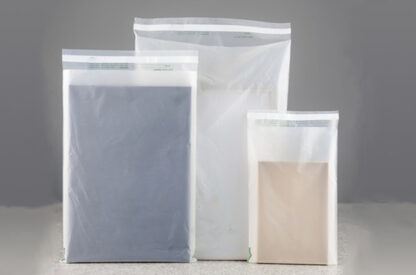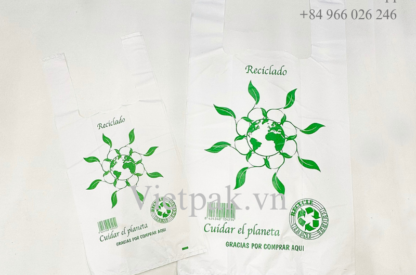Why Are Paper Bags Worse for The Planet than Plastic?
The use of single-use bags, whether they are made of paper or plastic, has come up for debate recently. While there are benefits and drawbacks to both types of bags, paper bags’ effect on the environment is a growing source of worry. We will examine various factors, from production to disposal, to explain why paper bags may be worse for the environment than plastic bags in this article.
Overview of Paper Bags and Plastic Bags

Paper bags and plastic bags are two common types of packaging used in various industries and for different purposes.
Definitions
Paper materials, typically obtained from trees and transformed into sheets, are used to make paper bags. They are frequently chosen because of how eco-friendly and biodegradable they are perceived to be. Paper bags are available in a variety of shapes and sizes with handles for simple carrying. They are frequently used to package goods and give customers a practical way to carry their purchases in retail stores, grocers, and restaurants.
On the other hand, synthetic polymers like polyethylene, polypropylene, or polyvinyl chloride (PVC) are used to make plastic bags. These bags are strong, long-lasting, and waterproof. Numerous industries, including retail, food service, and household applications, use plastic bags extensively. They are offered in various sizes and thicknesses and take on various forms, including grocery bags, ziplock bags, and trash bags.
Both paper bags and plastic bags have advantages and drawbacks, and they each have a different effect on the environment. Making informed decisions and implementing sustainable alternatives depend on having a thorough understanding of their characteristics and environmental effects.
Weighing Potential Impacts
It’s important to take into account a number of factors when comparing the environmental effects of paper bags and plastic bags. Regarding the use of resources, energy, waste production, and overall ecological footprint, each type of bag has pros and cons.
Because they are renewable and biodegradable, paper bags are frequently considered to be a more environmentally friendly option. They can be recycled numerous times and are made from a renewable resource—trees. In comparison to plastic bags, paper bags produce fewer carbon emissions during production. Furthermore, if they become litter, they pose less of a threat to wildlife and marine ecosystems.
Paper bags do, however, have a unique set of environmental disadvantages. Large amounts of water, energy, and chemicals are needed to produce paper bags. Trees must be cut down during the process, which may result in habitat loss and deforestation. Paper bag recycling is also less effective than plastic bag recycling because paper bag fibers degrade over time, reducing the number of recycling cycles.
On the other hand, plastic bags are frequently criticized for having a bad effect on the environment. They take a lot longer to decompose, frequently take hundreds of years, and are made from non-renewable fossil fuels. Although plastic bags are strong and lightweight, this can help save energy when they are being transported. However, because of their strength, they can linger in the environment for a very long time if they are not properly disposed of.
Because they can be mistaken for food and result in choking or entanglement, plastic bags pose serious risks to wildlife, especially marine animals. Environmental degradation is brought on by their involvement in landfill and ocean plastic pollution.
Drawbacks of Paper Bags

Resource Consumption and Production
Paper bag manufacturing uses a lot of resources. Deforestation and habitat destruction result from the harvesting and processing of trees into wood pulp. Paper bags are also made using a lot of energy and water, which adds to carbon emissions and water shortages.
Deforestation and Habitat Destruction
Paper bag manufacturing contributes to deforestation, which results in the loss of important habitats for numerous plant and animal species. Deforestation worsens climate change and environmental problems by upsetting ecosystems and lowering the planet’s capacity to absorb carbon dioxide.
Greenhouse Gas Emissions
Greenhouse gas emissions are produced by the manufacture of paper bags throughout the entire supply chain. Significant amounts of carbon dioxide are released into the atmosphere during various processes, such as tree harvesting and processing and energy-intensive manufacturing procedures, which contribute to global warming.
Water and Air Pollution

The manufacturing procedures used to create paper bags have the potential to pollute both the water and the air. Water bodies can become contaminated by the chemicals and pollutants used in bleaching and dyeing, harming aquatic life. Paper mill emissions can also worsen air pollution, which has an adverse effect on both the environment and human health.
Recycling and waste management
Paper bags face difficulties during the recycling process, despite the fact that recycling is frequently seen as a solution. They become less recyclable when they are contaminated with food waste, and recycling itself uses energy and resources. As a result, a lot of paper bags are disposed of in landfills where they decompose and release methane, an extremely potent greenhouse gas.
Plastic Bag Comparisons
Despite being infamous for their negative environmental effects, plastic bags do have some advantages over paper bags. They produce less waste overall because they use fewer resources, have a smaller carbon footprint, and can be recycled numerous times. Their resistance to deterioration and the possibility of marine pollution, however, continue to be major worries.
Consumer Choices and Misconceptions
Consumer decisions are crucial in lowering the demand for single-use bags. Due to their biodegradability, paper bags are often perceived as being more environmentally friendly, but their effects go well beyond the point at which they are used. Reusable bags made of cotton or canvas have a significantly smaller impact on the environment overall.
Sustainable Alternatives
Investigating sustainable alternatives is essential to addressing the environmental issues related to both paper and plastic bags. Environmentally friendly reusable bags are available in strong materials. Innovative packaging techniques and biodegradable plastics are other promising waste reduction and environmental impact mitigation strategies. For long-term sustainability, adopting a circular economy and ethical waste management procedures is essential.
Reference: The Environmental Impact of Paper Bags vs. Plastic Bags- https://environmental-impact-of-paper-vs-plastic
Conclusion

In summary, paper bags may appear to be a more environmentally friendly option, but their production, resource usage, and environmental impact reveal otherwise. They have a bigger environmental impact than plastic bags do because of things like deforestation, greenhouse gas emissions, and recycling difficulties. To reduce the overall impact of single-use bags on the environment, it is crucial to take into account sustainable alternatives and make thoughtful purchasing decisions.
LEADING MANUFACTURER
We are a premier plastic bag manufacturer based in Vietnam. Our dedicated team excels in crafting customized packaging solutions to precisely meet the needs of all customers
QUALITY CONTROL
We have a strict quality control system. Our bags are inspected before production, during production, and prior to loading into containers. Our priority is to minimize every defective goods before shipping to our customers
AMAZING SERVICE
Our enthusiastic customer service team always strives to respond to your emails as promptly as possible. We take pride in our ability to consistently deliver high-quality products on time, every time.

















